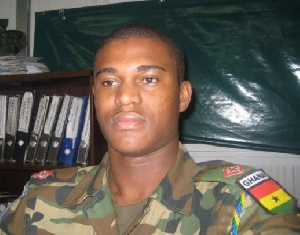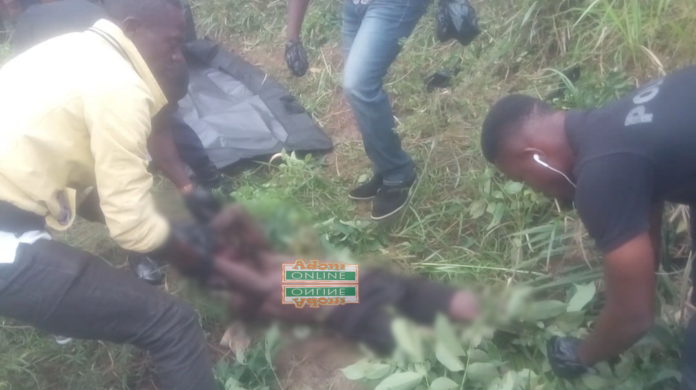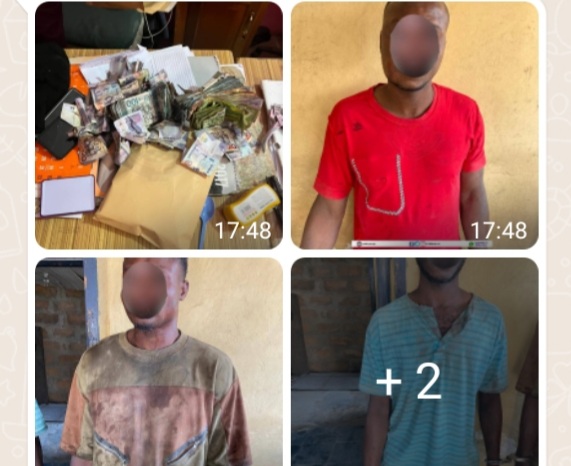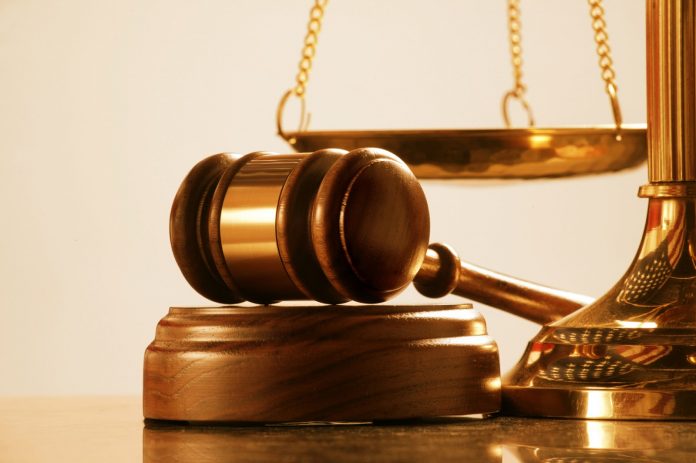Drama in court over Mahama video

There was controversy over the tendering of the video detailing the gruesome murder of Major Maxwell Adams Mahama by a mob in May 2017.
In court on Tuesday, the investigator in the matter, Chief Inspector Samuel Agyarkwa, who is the 14th prosecution witness in the case in which 14 persons are standing trial for murder, sparked more drama when he identified a pen drive containing videos of the gruesome murder.
Lawyers of some of the 14 accused persons objected to his effort to tender in evidence the pen drive.
Objections
One of the defence lawyers, Bernard Shaw, said “we object to this piece of evidence since the witness is not the author of the original video, the subject matter on board.
He argued that per the witness’s own evidence, the information about the video was taken from social media and the defence is deprived of the opportunity to question the taker on the state, quality and operational efficiency of the implement used.
But, “more importantly whether the images the defence have been served and which the prosecution is urging this court to use in the adjudication of the matter have been doctored.”
According to counsel, “in this age of massive photo-shoping and the emergence of the phenomenon of fake news, it is against the tenets of fair trial to admit the video to evidence when the defence cannot question who took the video.
He explained further that, “a fundamental rule of evidence is direct evidence when witnesses give account of their personal knowledge experience and perception of events which they experienced with their senses.
It was the contention that, “the video is hearsay and as with what the law says in the exercise of justice your discretion is excluded because discretion is exercised when balancing counter-veiling factors in relation to the probate value as against the prejudice that it can make of the case of the defence.”
He, however, told the court that “it is my submission that the prejudicial value of this evidence far outweight any probative values in any criminal prosecution.”
‘Show video before tendering’
Another lawyer, Theophilus Donkor, said the video ought to be shown in court before objections are raised. He drew the court’s attention to the electronic transaction act which he said frowned on the manner in which the said video was obtained.
Four other defence lawyers in the matter associated themselves with the submission by Lawyer Bernard Shaw.
Objections flawed
Mrs Evelyn Keelson, the Chief State Attorney in the case, while responding to the objections, particularly those from Lawyer Donkor, said “the objection for the video to be watched in open court before it is tendered in evidence is completely flawed.”
She said “it is not suppprted by any rule of law or evidence.”
According to her, the prosecution gave to each of the defence a pen drive to the accused persons and each of them has videos on the drive.
She said that is the requirement set by the Supreme Court in the Baffoe-Bonnie case and “We have complied with that.”
“This video can only be watched after it has been admitted to evidence by the court. If counsel has issues that the video tendered is different from what he has, he can cross-examine the witness on it.”
She, however, prayed to dismiss the objections.
On the issue of the source of the said video, she relied on Section 51 on the Evidence Act to say that “this video is relevant to this trial.”
“My Lord will see that through out this trial, the video has been a subject all throughout even before evidence. This is pictorial evidence and all can see.”
By court
The court presided over by Justice Mariama Owusu, Justice of the Supreme Court sitting with additional responsibility as a High Court judge, adjourned ruling on the objection to February 12, 2020.
The court also adjourned the case to apprise itself of the electronic transaction act, as per the case raised by one of the lawyers.
Source: dailyheritage.com.gh





